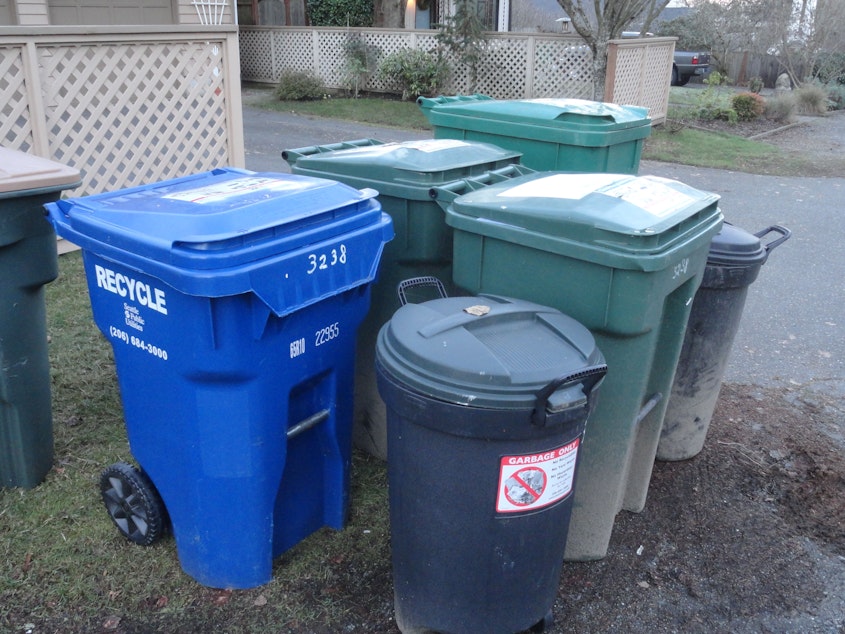Seattle Ends Biweekly Trash Pickup Pilot Program

Many Seattle residents are grateful for the new year because it means that their garbage will be picked up every week. At least for now.
For the past six months, 800 Seattle households participated in a pilot program that experimented with picking up the trash every other week. The affected neighborhoods were roughly in the four corners of the city and included Wedgewood.
Wedgewood resident Laura Knight said she liked the idea of biweekly pickups, but her family did have some problems with it. Because of the less frequent garbage pickups, Knight’s household put more food waste in the compost. And when the weather turned hot, the compost turned into a problem.
“In the summertime it was really gross because it was so warm and, depending on what you had in the compost, we had problems with maggots and bugs," she said. "My two daughters politely, or not so politely, declined from tossing stuff into the compost. The bugs were everywhere."
Knight said neighbors had similar issues. It even came up during a neighborhood block party. “We talked about that and we tried to come up with solutions for that, but, you know, if it’s not every week and it’s really warm outside, that can be a problem,” she said.
Sponsored
Knight said they never really came up with an answer. An elderly neighbor noted that after the switch to biweekly collections, his trash container quickly filled up with adult diapers.
Another neighbor, Kyle Piper, wasn’t excited about the program. Piper appreciated the benefits, namely fewer trucks and less pollution, but he wasn’t sure if it was a good idea for the entire city. “In the end, is it just more for the garbage company to reduce costs? I don’t see the upside for the communities,” he said. Piper said if the city wants to implement biweekly pickups, customers should be given a reduction on their bills.
Seattle Public Utilities says it’s looking into that, but it said it has to find the right balance. The utility is hoping that less frequent trash pickups would lead to more recycling and composting. And SPU only wants to lower people’s trash fees, if it would lead to an increase in recycling and composting.
Brett Stav, senior planning and development specialist for Seattle Public Utilities, said they’ll be exploring possible rate cuts. “How we do that equitably is still up for more study because we want to make it as equitable as possible, but still creating that incentive,” he said. Officials have said if the change is implemented across the city, it could save about $6 million a year.
SPU is scheduled to issue a report to the City Council sometime before June 3.
Sponsored
Meanwhile, a similar shift is already underway in Tacoma. Tacoma completed its pilot program last year. It’s now planning to phase in biweekly pickups this year. A Tacoma city spokeswoman says after the start-up costs are paid, the switch will save that city about $1.2 million a year.

